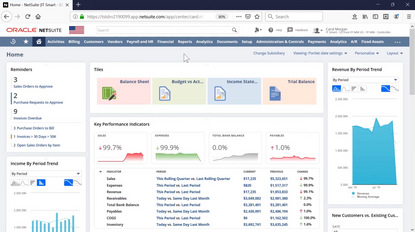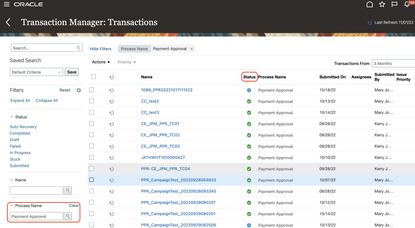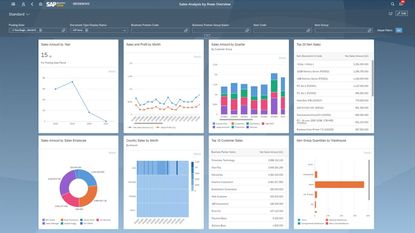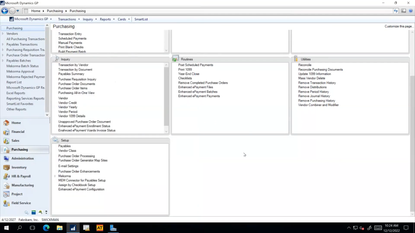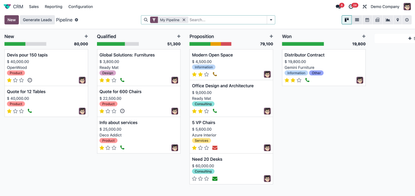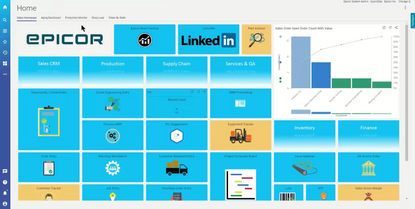ERP vs. CRM: What’s The Difference?
If you run a business, you’ve probably considered using software to streamline operations. Two terms you’ve likely encountered during your search are enterprise resource planning (ERP) and customer relationship management (CRM), as these are two of the most highly used software suites available to customer-facing businesses.
What is the Difference Between CRM and ERP?
The very short version is this: ERP software primarily covers financial processes while CRM solutions focus on external customer communication.
Learn more about what they do and the benefits they bring to businesses:
What is ERP Software?
ERP, known as enterprise resource planning, usually refers to any software suite made up of financial business management tools to keep your budgets balanced and calculate ROI. Main features include:
Depending on the specific software, there may be human resource (HR) tools and applications for procurement and supply chain management. Additionally, there are limited CRM and supply chain management modules.
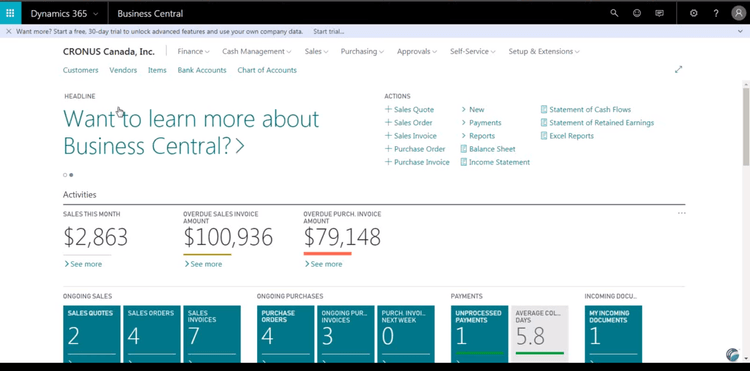
ERP Benefits
The many features of ERP make it an incredibly popular option for optimizing financial business processes across every department in real time. And its versatility makes it useful for companies within every industry. Other benefits include:
- Automated workflows
- Better financial planning and decision-making
- Improved data security and process visibility
- Increased communication and interdepartmental collaboration
What is CRM Software?
CRM improves the customer experience for both B2B and B2C operations. As a software suite, it includes all sorts of features to streamline communication between your customers and market your company to potential partners. In particular, this software includes:
- Contact management
- Marketing campaign management
- Call scripts and email templates
- Follow-up scheduling
- Customer order history
- Social media channel management
CRM software is recommended for any business which deals directly with customers or clients. This might mean sending newsletters to customers who visit a physical storefront or delivering invoices to suppliers who buy your goods earlier on the supply chain. Whatever customer interactions your business relies on, CRM can handle it.
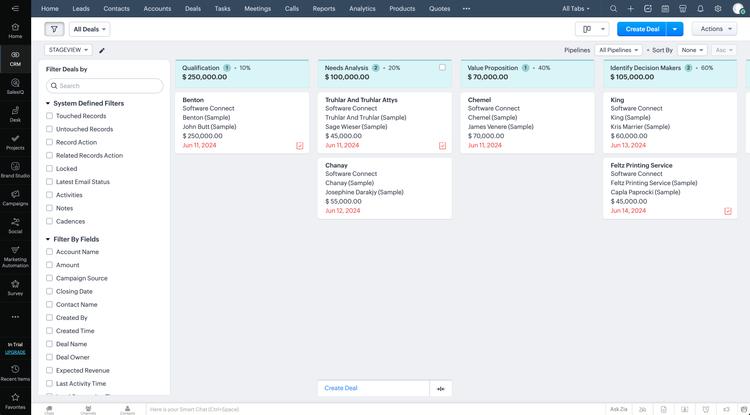
CRM Benefits
The top benefits offered by CRM software include:
- All customer contact information in one system
- Automation of marketing and outreach
- Better prospect and upselling identification
- More visibility into lead sources
- Improved sales effectiveness by sharing best practice sales techniques
Are CRM and ERP the Same?
ERP and CRM overlap in several ways, primarily since they both streamline business processes. In fact, several ERP solutions even include modules for CRM. They each make it easier to perform previously manual tasks, reducing the likelihood of human error when making calculations or scheduling workflow. Finally, both are available as software as a service (SaaS), making these applications available online from anywhere.
What is the Difference Between ERP and CRM Software?
However, there are some significant differences to consider:
By Function
Of course, ERP and CRM have different, though similar, functions. ERP software tends to focus on inter-departmental processes like accounting and supply chain management. While ERP automates business management throughout the production lifecycle, CRM focuses on compiling contact information for potential customers to increase sales opportunities and provide sales reps with better support.
By Scale
ERP suites tend to be more encompassing than CRM software as they have to cover more parts of your business operations. As mentioned before, ERP is meant to handle every aspect of your business from the start of the supply chain until the end. Essentially, you notify the entire company about changes to your business process through one platform. CRM is only focused on improving and maintaining customer, lead, and opportunity interactions.
By User
The core functionalities of ERP can be used by an entire company through every step of the product or service supply chain. Manage production from the raw materials all the way until a finished product arrives on store shelves. ERP has tools for financial workers, manufacturers, distributors, HR, sales, marketing, and, in some cases, legal departments. An ERP system minimizes miscommunications by standardizing data across all departments.
By comparison, CRM is primarily for sales and marketing departments to stay in control of customer communication. While some other departments may benefit from CRM, it depends on the level of interaction. For example, the IT department isn’t normally in contact with customers, but you may use a CRM to issue tickets for customer support.
ERP or CRM: Which Do You Need?
Now that you know the key differences between ERP and CRM, do you know which one your company needs? It all comes down to whether you need general business software or a specific solution for a single purpose.
Is an ERP Better than a CRM?
An ERP which includes CRM tools can be a one-stop solution for businesses. However, whether or not this is better will largely depend upon your business model. If you need a lot of customer management tools, a separate CRM software may be better than what add-on an ERP has to offer. However, if you only need to track some customer information, an ERP may be best.
However, if your business is heavily customer-facing, you may want to have a standalone CRM software separate from your ERP system to meet those needs. Or, if your marketing or sales department is very large, you may benefit from an integrated CRM system just for them.
Can an ERP Replace a CRM?
An ERP with CRM features can replace a standalone CRM software. If you want your company to have all the benefits of ERP and CRM without paying twice as much, there’s good news! Many ERP suites include CRM modules, either built-in or as optional add-ons. It may make more sense for your business to get an ERP suite with CRM than to purchase two separate programs.
Popular ERP software options include:
Industry-Specific Options
General ERP applications can be used by any industry since it offers universal business features like accounting, scheduling, and more. However, there are types of ERP software made for certain industries, such as manufacturing and construction.
In contrast, CRM software is more useful for companies across every industry which deal with a high volume of B2B and B2C customers on a regular basis. Amongst B2C companies, the retail and hospitality industry in particular both rely on clear customer communication to avoid overstock and overbooking mistakes.
If your business operations highly depend on manufacturing and distribution, you’ll be glad to know both ERP and CRM solutions can integrate with supply chain management software to control the flow of goods and services between different locations as efficiently as possible.
Not sure if you need both? Request a free software demo and get pricing now from our software experts.

